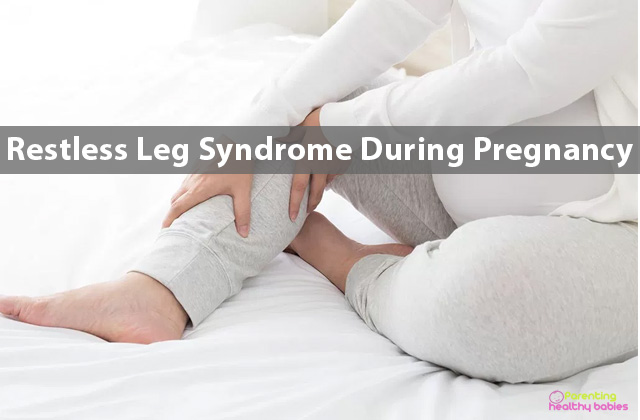labor and birth are a very difficult and painful period of a woman, a time that is looked at with the most dread by mother to be. When labor starts, there is usually a waiting gap between each stage of labor. But when it comes to women going through precipitate labor, everything happens very quickly and rapidly. In some cases it comes as a blessed relief and in other it can be a bit more complicated than that.
In this article:
What is Precipitous Labor?
Risk Factors of Precipitous Labor
Signs and Symptoms of Precipitous Labor
Complications During Delivery
Management of Precipitous Labor
Some FAQs
All You Need to Know About Precipitous Labor
What is Precipitous Labor?
Precipitous labor is the term given to the case when a woman goes into labor and has the baby within three hours. Only around two in a hundred women will end up having precipitous labor. There are some women who do not even know they are in labor as there is no pain and remain oblivious until they find themselves in the second stage of labor which is when the baby’s head will begin to descend and there is feel the urge to start pushing.
The contractions of the uterus in these cases happen so painlessly that it is not detected by the mother at all. Contractions are the first stage of labor which is usually build up in intensity as labor progresses. So, women going through precipitate labor can sometimes experience very intense cramps right from the start.
Risk Factors of Precipitous Labor
Certain factors can work together to make it possible to go into precipitous labor that are –
- Very strong uteri and that contract with all its might when in labor
- A very smooth birth canal
- History of precipitate labor
- A baby smaller than the average size
- When prostaglandin is used to induce labor
- If conceived using fertility treatments
Signs and Symptoms of Precipitous Labor
Some signs and symptoms are –
- Contractions that are very close together and that do not leave with much recovery time between them
- Intense pain throughout that feels like it is one long contraction
- An urge to push that emerges very suddenly and it is similar to the feeling during a bowel movement
Complications During Delivery
Any birthing plan that is made should be thrown out the window since it is most likely not be able to recover enough to implement them. It is especially risky because there is not enough time to get to the hospital and it is likely that the baby may be born in an unsterile environment. The complications to mother and baby are not the same which are –
For the mother
- Damage to the vagina and cervix in the form of tearing and lacerations
- Hemorrhage in the uterus or vagina
- A state of shock after the sudden and quick birth leading to increased delivery time or period
- Having the baby in an unwanted and unhygienic environment
- The retained placenta which is when some or the entire placenta is still inside the mother and does not get expelled out completely
For the baby
- There is a risk of infection to the little one if born in an unsanitary place
- The baby could accidentally inhale the amniotic fluid
Management of Precipitous Labor
Nobody can really do anything to control the speed at which the baby is born if there is precipitate labor, but there are ways to manage it which include –
- Either call a doctor, midwife or the emergency number to get a professional’s help as soon as possible.
- Lie down either on the back or side.
- Remain in a clean space.
- Take deep breather and think about calming things.
Some FAQs
Does Rapid Labor have any Emotional Effect on the Mother?
Precipitate labor can cause emotional changes to the mother because of everything that the mother goes through during labor. It can be hard to manage as the mother often feels like things are out of control due to everything happening so fast and with no time to even recover because of this time can be very emotional and stressful.
If you had Precipitate Labor Previously, What are the Odds of having it again?
If had precipitate labor before, then the chances of it happening are higher but that does not mean it will happen. However, the pregnancy takes a different turn altogether from last time.
Can Labor Induction Prevent Another Precipitous Labor?
No, it is more likely that labor induction causes the precipitous labor to occur rather than prevent it as is true when using something such as prostaglandin. The doctor is very unlikely to suggest that to induce labor as it can also increase the risk of other inventions such as assisted birth.
How Should I Plan for Another Fast Labor?
If there have been known to have previously had precipitate labor then the doctor is more likely to suggest that give birth in a labor ward. This will prevent the baby from being born in an unwanted place like at home or in the car and will reduce the likelihood of any infections being contracted due to unsanitary situations. If there still is unsure as to whether or not able to get to the hospital on time, always have a midwife or ambulance sent over to the house. If out a lot, it is best to pack some things that may need and keep it, so in case go into labor outside. Pack absorbent mats so that it can be used somewhere clean to give birth on, clean towel and blanket for baby, clean clothes for the mother, plastic bag for the placenta and maternity pads.
Conclusion
Not every women end up with the average labor that takes some time to build up and so it can be quite unpredictable. Being prepared for any given situations is the best and consult a doctor.
References
- https://www.ncbi.nlm.nih.gov/pmc/articles/PMC4285060/
- https://parenting.firstcry.com/articles/precipitate-labor-fast-labor-causes-symptoms-risks-and-management/













